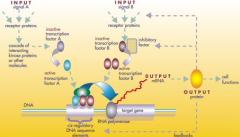
Activités
Special issue of "Microorganisms"
Plant pathogenic bacteria infect numerous agricultural crops, causing devastating effects on plant productivity and yield. They survive in diverse environments, both in plants, as pathogens, or outside their hosts as saprophytes or in alternate hosts. Hence, they are confronted with numerous changing environmental parameters. During infection, plant pathogens must resist stressful conditions such as acidic, oxidative, and osmotic stresses; anaerobiosis; plant defenses; and contact with antimicrobial compounds. These adverse conditions can reduce bacterial survival and compromise disease initiation and propagation. Successful bacterial plant pathogens must detect potential hosts and efficiently coordinate their conflicting programs for survival and virulence. Consequently, these bacteria have a strong and finely-tuned capacity for sensing and responding to intracellular signals and to environmental or plant stimuli. To coordinate such virulence program(s), plant pathogenic bacteria use a wide range of mechanisms, including numerous transcription factors acting under the constraint imposed by nucleoid-associated proteins, DNA topology, and non-coding regulatory RNAs.
In this Special Issue of Microorganisms, we invite contributions concerning any aspect of such global regulatory networks in plant pathogenic bacteria with a particular emphasis on the signals and genetic circuits that affect survival and virulence factor expression.
© illustration: Public Domain, Wikimedia https://commons.wikimedia.org/w/index.php?curid=2109634

